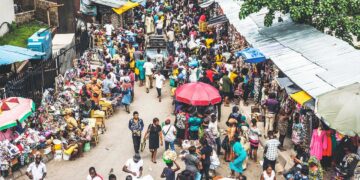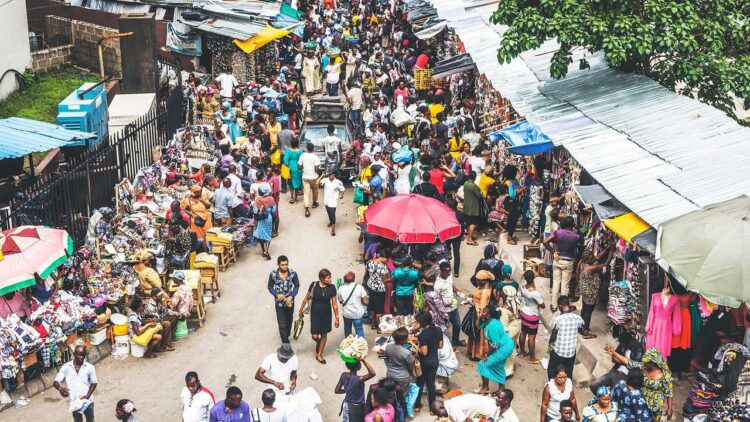Shopping in Nigeria has undergone significant transformation over the years, with technology playing a pivotal role in reshaping consumer habits. As we embrace 2025, shoppers are increasingly looking for ways to save money, maximize value, and make smarter purchasing decisions. To navigate this ever-changing space, adopting effective strategies is essential.
7 Smart Shopping Strategies for Nigerians in 2025
1. Compare prices online
One of the most impactful ways to shop smartly is by leveraging digital platforms for price comparisons. Online shopping has become a dominant trend in Nigeria, with platforms like Jumia and Konga offering vast product selections. To make the most of these platforms, shoppers can utilize tools like PriceCheck Nigeria to compare prices across different sellers. Signing up for newsletters or downloading shopping apps ensures that you stay updated on flash sales and promotional events. Tracking price trends over time can also help identify the best periods to make purchases, allowing you to save significantly.
2. Join loyalty programs and use discounts
Loyalty programs and discount offers remain a cornerstone of smart shopping. Many major retailers, both online and offline, now provide reward schemes that encourage repeat purchases. For instance, supermarkets such as Shoprite and Spar reward customers with points that can be redeemed for discounts or free products. Shoppers who use coupon websites or promotional codes can further reduce their expenses. Exclusive membership benefits, like Jumia Prime’s free delivery options, add another layer of savings for those who frequently shop online.
3. Shop during off-peak seasons
Timing plays a crucial role in determining how much you spend. Shopping during off-peak seasons is a proven strategy to secure the best deals. For seasonal items like winter clothing or electronics, prices are often reduced when demand is low. Similarly, avoiding the rush during festive periods such as Christmas or Eid can prevent overpaying for essential items like food and clothing. Post-holiday sales also present an excellent opportunity to purchase goods at heavily discounted prices, as retailers clear out their inventories.
4. Buy in bulk
Bulk buying is another smart approach that has gained popularity, especially for households looking to save on everyday essentials. Cooperative societies and local buying clubs allow members to pool resources and purchase goods in larger quantities at reduced rates. Items like rice, detergents, and cooking oil are often cheaper when bought in bulk. Wholesale markets such as Lagos Trade Fair and Alaba Market provide excellent opportunities to buy goods at prices that are lower than retail. Bulk buying not only saves money but also reduces the frequency of shopping trips, saving time and effort.
5. Use cashless payment options
As Nigeria continues its push toward a cashless economy, the use of digital payment methods has become a cost-saving tool for shoppers. Many fintech platforms, including Paga and PalmPay, offer cashback rewards for transactions completed through their apps. Some e-commerce websites also provide discounts for payments made using digital wallets. Credit cardholders can enjoy additional benefits such as loyalty points or cashback, making it worthwhile to explore the perks associated with their cards.
6. Support local products
The “Made in Nigeria” movement has also become an important factor in smart shopping. By prioritizing locally made products, consumers can save money while supporting the economy. Nigerian-made goods, such as Adire fabrics, fresh produce, and locally crafted household items, are often more affordable and just as durable as imported alternatives. Markets like Balogun and Aba Market offer high-quality items at competitive prices. Exploring Nigerian brands such as Zaron Cosmetics or PEP also provides access to affordable, high-quality products that rival their international counterparts.
7. Use technology to shop smarter
Technology continues to redefine the shopping experience in Nigeria, offering tools that make the process more efficient and cost-effective. Shopping apps like JumiaPay and Gloo.ng simplify the purchasing process by providing access to deals, streamlined payment methods, and home delivery options. Platforms such as DealDey and Bargain Nigeria allow users to set up price alerts for specific products, ensuring they shop at the most opportune times. Some apps even include virtual shopping assistants that suggest cost-effective options based on your preferences and budget, taking the guesswork out of decision-making.
Additional tips for smarter shopping
Shopping smartly in 2025 requires more than just finding discounts. It involves strategic planning, staying informed about market trends, and embracing innovations that save time and money. Avoiding impulse purchases by creating a shopping list and sticking to it helps keep spending under control. Shopping with friends or family members can enable bulk purchases at lower costs, while following retailers on social media ensures you don’t miss out on exclusive deals or promotions.
Investing in quality products is another critical aspect of smart shopping. While it might seem cheaper to buy low-cost alternatives, high-quality items often last longer and provide better value over time. Energy-efficient appliances, for example, may cost more upfront but save significantly on electricity bills in the long run.
Conclusion
In conclusion, navigating the shopping landscape in Nigeria in 2025 requires a thoughtful approach. By utilizing digital tools, timing purchases strategically, and supporting local products, you can achieve substantial savings while enjoying high-quality goods. These strategies not only make you a smarter shopper but also contribute to building a sustainable and resilient economy. With these insights, you’re well-equipped to make informed choices and maximize your shopping experience.




































Discussion about this post